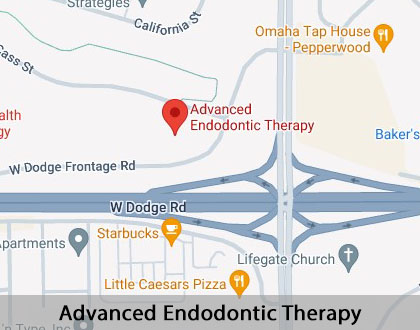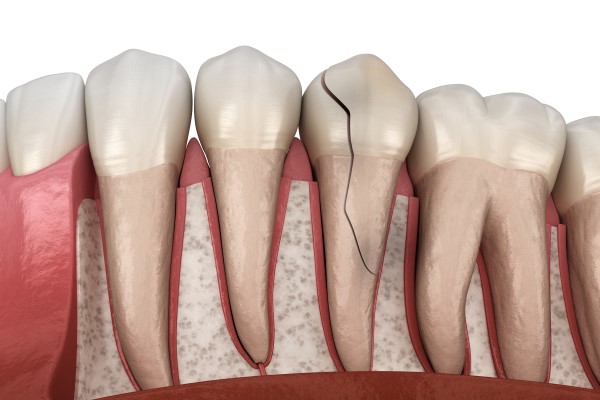Endodontist vs. Dentist Omaha, NE
A general dentist is much like a primary care doctor for your teeth, while an endodontist specializes in treating the insides of teeth. Endodontists and dentists are both dental professionals who help with various issues, but who does one go to for a particular dental issue? Knowing the difference between the two can help you decide who to turn to for which dental needs.
While it may be helpful to get a referral from a general dentist, you can also make an appointment with an endodontist. Endodontic services are available at Advanced Endodontic Therapy in Omaha and the surrounding area. Call us at (402) 506-7111 to learn more or to schedule an appointment.
What a Dentist and Endodontist Have in Common
Endodontists and dentists both work under the umbrella of dentistry. However, not every dentist is an endodontist. Within dentistry, there are several specialties, such as oral surgery, periodontics, orthodontics, and endodontics. Like a specialist in any other medical field, a specialist in dentistry must complete additional education after dental school. An endodontist has completed two to three years of additional education focusing on a specific part of dentistry.
“Like a specialist in any other medical field, a specialist in dentistry must complete additional education after dental school.”
How Endodontists Differ
Endodontists have received additional training focusing on studying and treating the insides of teeth. They work mainly with dental pulp, which is the soft tissue inside the tooth. This tissue contains the living part of the tooth. While general dentists receive some training in endodontics during dental school, endodontists focus solely on treatments involving tooth pulp.
This often means addressing issues that cause tooth pain or saving damaged teeth. The most common procedure performed by an endodontist is a root canal. In fact,endodontists are often referred to as root canal dentists.
“While general dentists receive some training in endodontics during dental school, endodontists focus solely on treatments involving tooth pulp.”
When to See a Dentist
Think of a dentist as a primary care provider for the mouth. People should see a general dentist for things related to regular oral hygiene and dental maintenance. This includes checkups and dental cleanings twice a year.
However, a general dentist can perform many procedures, as well. For example, they can fill cavities, remove injured or broken teeth, perform root canals, or place dental implants. General dentists may also perform cosmetic procedures such as tooth whitening or veneer placement.
“People should see a general dentist for things related to regular oral hygiene and dental maintenance.”
Check out what others are saying about our dental services on Yelp: Endodontist vs. Dentist in Omaha, NE
When to See an Endodontist
Serious or complex tooth injuries may require the care of an endodontist. If an individual has a broken or infected tooth root, their dentist will most likely recommend saving the tooth if at all possible. This is the domain of the endodontist. They are experts at saving teeth.
In many cases, saving a tooth requires a root canal. During this procedure, we will remove the infected pulp and clean the inside of the tooth to prevent further infection. Then, we will fill the tooth root with a rubber-like material.
“They are experts at saving teeth.”
Questions Answered on This Page
Q. What is the difference between a dentist and an endodontist?
Q. What do endodontists focus on?
Q. How often should people go to the dentist?
Q. When should I see an endodontist?
Q. How do I find a good endodontist?
People Also Ask
Q. What can cause a tooth infection? What are the symptoms of a tooth infection?
Q. Why do endodontists perform root canals?
Q. How can I tell if I have a cracked or broken tooth?
Q. How are endodontists different than dentists?
Tips for Finding the Right Dental Professional
It is important for people to find a dental professional they feel comfortable with. However, this professional should also possess the skill set best suited to handle their dental health issue. If someone needs endodontic treatment, a dentist will likely refer them to a colleague who is an endodontist. However, individuals are free to see another endodontist if they prefer. Read online reviews, or ask friends and family members for recommendations.
“If someone needs endodontic treatment, a dentist will likely refer them to a colleague who is an endodontist.”
Frequently Asked Questions
Q. How long does a root canal take?
A. The amount of time needed for a root canal appointment can vary somewhat depending on the injury and the tooth's position. In most cases, a root canal will last 30 minutes to an hour. Following a root canal, you will likely receive a temporary crown and will need to return at a later date for a permanent crown.
Q. Why should you get a root canal?
A. Removing the tooth and replacing it with an implant or a bridge may seem simpler if you have a damaged tooth. However, there are many advantages to saving the natural tooth. In most cases, it is much less expensive to save the natural tooth than to replace it. Once a tooth is removed, the surrounding jawbone will degrade, causing adjacent teeth to become loose. Saving your original tooth can lead to a stronger jawbone, less difficulty chewing, and a lower risk of complications and side effects from additional dental treatments.
Q. What are the signs that a root canal is needed?
A. A root canal may be necessary in the case of severe tooth pain, especially pain that becomes worse when chewing. Sensitivity to hot and cold foods could also indicate a cracked tooth. Symptoms such as swelling and tenderness in the gums could also indicate a tooth infection. It is best to have any such symptoms checked out by an endodontist before they become worse.
Q. What happens if you do not get a root canal?
A. Postponing any recommended dental procedure could lead to complications and the need for more extensive treatment. If you have an infection and do not get it treated, the infection can spread to surrounding teeth and the gums. This could lead to the loss of one or more teeth. If you are hesitant to get a root canal because of possible pain during the procedure, ask your practitioner what they can do to make the procedure more comfortable.
Q. How do you prepare for a root canal?
A. Your endodontist will provide instructions on how to prepare for a root canal. Root canals are typically performed with a local anesthetic, so fasting before the procedure is not necessary. It may be a good idea to eat beforehand, as your mouth will be sore afterward, and you may not be able to eat for several hours. Avoid alcohol and tobacco for at least 24 hours before any dental procedure.
Start Feeling Better – Visit Us Today
By visiting us as soon as possible, our team can help get you the professional treatment you need. Instead of waiting around and allowing the symptoms to get worse, we can provide you with treatment options.
Definitions
Learn More About Endodontists vs. Dentists
If someone has cracked a tooth or even a tooth that has been knocked out, it is best to see an endodontist as soon as possible. With prompt care, the tooth may be salvageable. Call us at 402-506-7111 to learn more or to schedule an appointment.
Helpful Related Links
- American Academy of Periodontology. What is a Periodontist? 2024
- American Association of Endodontists. Home Page. 2024
- American Association of Orthodontists. Home Page. 2024
- American Dental Association. Home Page. 2024
- Cleveland Clinic. Dental Bridges. 2024
- Food and Drug Administration. Dental Implants: What You Should Know. 2024
- Healthline. What to Expect During a Tooth Extraction. 2024
- Medical News Today. What to expect from root canal treatment. 2024
About our business and website security
- Advanced Endodontic Therapy was established in 2008.
- We accept the following payment methods: Cash, Discover, MasterCard, and Visa
- We serve patients from the following counties: Douglas County, Dodge County, Lancaster County, and Sarpy County
- We serve patients from the following cities: Omaha, Benson, Florence, Bellevue, Fort Calhoun, Papillion, Lincoln, Bennington, Plattsmouth, Fremont and Elkhorn, Missouri Valley, and Council Bluffs
- Norton Safe Web. View Details
- Trend Micro Site Safety Center. View Details
Back to top of Endodontist vs. Dentist










